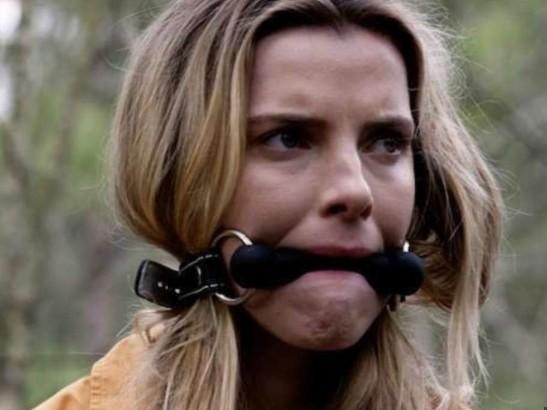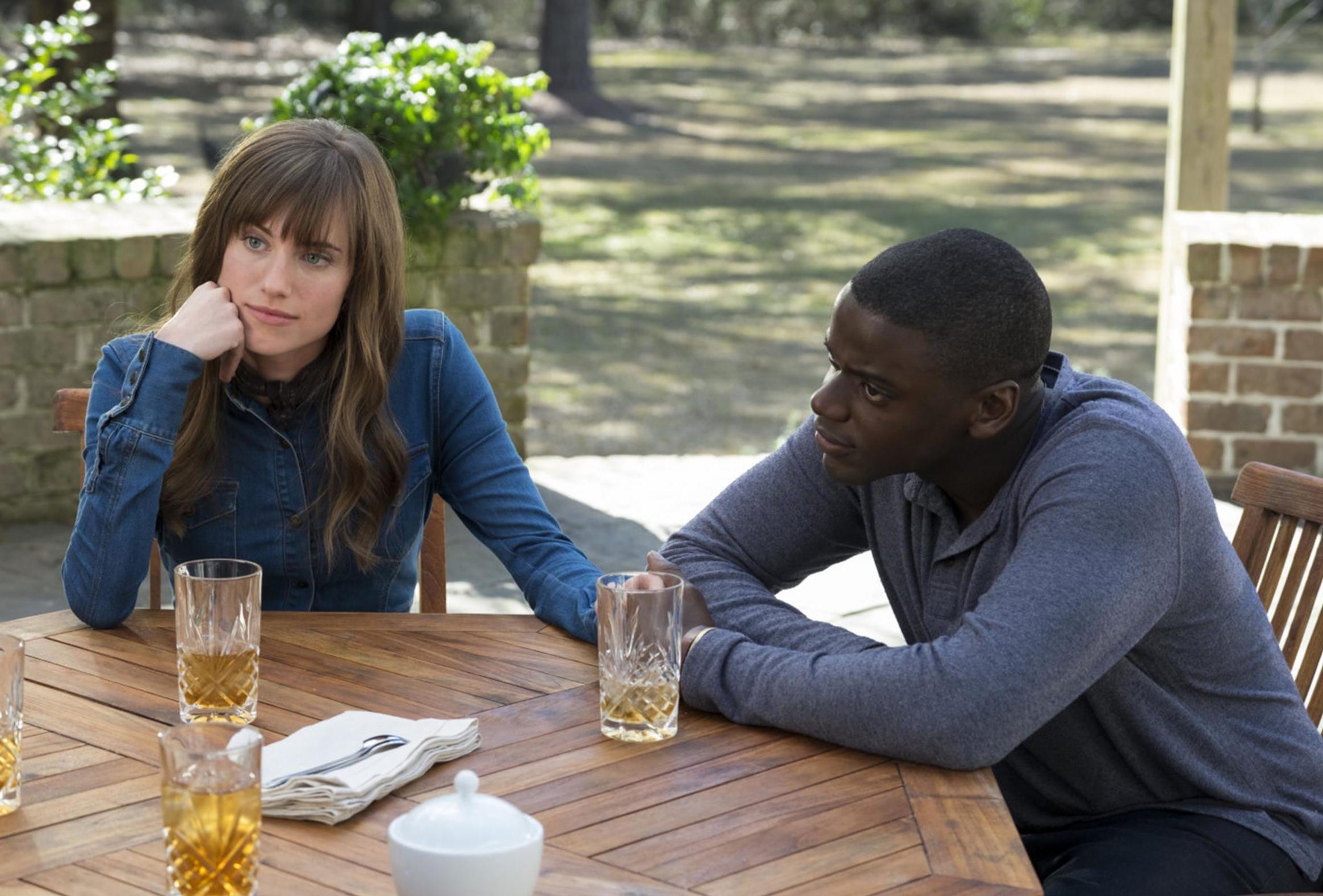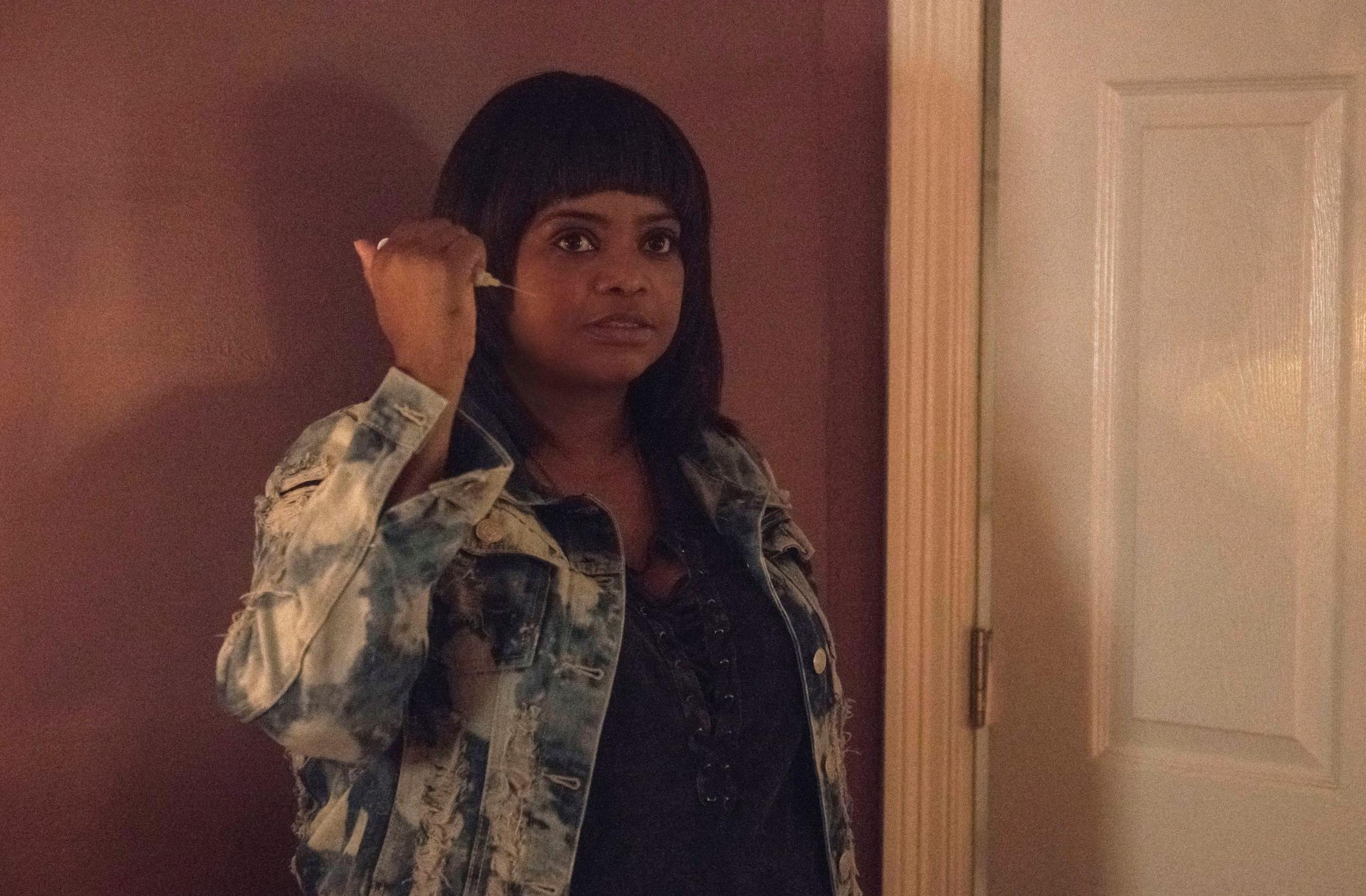From The Hunt to Us: What Hollywood genre movies tell us about class and politics in Trump’s America
A new wave of satirical horror films are revealing just how bitterly divided US society has become, says Geoffrey Macnab

If you want to know about the social, racial and political divisions in US society in the President Trump era, don’t read op-ed pieces in newspapers, watch cable news shows or follow the president on Twitter. You’ll get better, quicker insight into Trump’s America from some of the genre fare made by TV and film companies like Blumhouse or produced by its founder Jason Blum over the past five years: films like Get Out (2017), The Purge: Election Year (2016), BlacKkKlansman (2018), Us (2019) and Ma (2019).
In Blumhouse’s latest film The Hunt, which is out in cinemas next month, wealthy, liberal Americans hunt “deplorables” for recreation. The name of the prey in this unlikely new blood sport deliberately echoes Democratic candidate Hillary Clinton’s notorious campaign speech in 2016 in which she described some of Trump’s supporters as “a basketful of deplorables”.
“Every year, these liberal elites kidnap a bunch of normal folks like us and hunt us for sport,” one of the victims in The Hunt notes of their status as playthings and victims.
In advance of its release, The Hunt has already provoked the ire of the president. “Liberal Hollywood is Racist at the highest level, and with great Anger and Hate!” Trump tweeted.

The Hunt should have been in cinemas in September but its release was held back because of what its distributor, Universal, called “sensitivity to the country’s shooting tragedies” in Dayton, Ohio, and El Paso, Texas, last August.
Blumhouse Productions’ horror movies haven’t prospered at the box office just because of their clever stories and ability to terrify audiences. They have also benefited from ingenious marketing and their uncanny ability to capture the zeitgeist. That ability was underlined again this week with the release of their reboot of The Invisible Man in which they gave the HG Wells yarn a new spin for the #MeToo era by focusing on abusive relationships and toxic, Weinstein-like masculinity.
In making The Hunt, the company clearly saw an opportunity to benefit from the polarised and bitterly divided nature of contemporary US politics. Blumhouse is aiming the film both at Trump’s supporters and at his most fervent opponents. The controversy around the film has only served to boost its profile. Nobody seriously believed that Universal was going to shelve The Hunt indefinitely.
Six months on from the date it was originally due to reach cinemas, the film is more topical than ever. It is being released just as the US election gets into full swing and just as Nanette Burstein’s epic new TV documentary series Hillary (which showed at the Berlin Film Festival this week) arrives on screen.
Hillary profiles Hillary Clinton. The final episode focuses on her 2016 run for the presidency when she made her “deplorables” remark. Burstein pays particular attention to one bizarre scene that looks as if it could have come straight out of a Blumhouse horror film. During one of the presidential debates, as Clinton talks to her audience, her rival Trump sidles up behind her, following her around the stage like a hunter getting ready for the kill. She tries to stay calm.
“He was stalking me. He was leering over me. He was preening like an alpha male,” Clinton recalls in the documentary. She contemplated “wheeling around and saying to him ‘back off you creep’”, but realised that if she did so, the media would attack her for getting rattled.
The politics behind the new wave of horror movies pitting haves against have-nots are far more complex and nuanced than Trump’s bizarre remarks about “Hollywood being racist at the highest level” would suggest. It’s often hard to work out just where these films’ political sensibilities lie. The same films can end up being denounced or embraced by conservatives and liberals alike.
One reason for the popularity of James DeMonaco’s Purge franchise is that the stories always take the point of view of the “normal folk”. The low-income families are the ones in the firing line on “purge night” while the rich, privileged “elite” types are either orchestrating the blood-letting or safe in their luxurious, heavily guarded homes.
The Hunger Games franchise may be a dystopian fantasy but it also contrasts the plight of blue-collar types like its heroine Katniss Everdeen with the privileged lives of the slick celebrities and crooked politicians on Capitol Hill. They enjoy themselves and get rich while she is made to fight for her life on reality TV.
Trump’s most recent foray into film criticism came earlier this month when he expressed his dismay that Parasite, a film from South Korea, won The Best Picture Oscar. “We’ve got enough problems with South Korea with trade; on top of it, they give it the best movie of the year,” the president complained at a recent rally. If he had actually watched the film, he would have realised that it was satirising the privileged liberal elite that he himself takes such pleasure in bashing.

On the basis of movies produced by Jason Blum like Get Out and BlacKkKlansman, it would seem a very fair bet that Blum himself is in the Hillary camp. However, he is far too smart to risk alienating the Trump supporters, who are likely to make up a sizeable part of the audience for his films. He has sometimes worked with Michael Bay, a producer-director with a very gung ho, John Wayne-like perspective on US politics if 13 Hours (2016), his film about the siege of Benghazi, is taken as the measure.
“None of us were interested in taking sides with this movie,” Blum and The Hunt’s screenwriter Damon Lindelof recently told The Hollywood Reporter. They claimed the film was “even-handed in its send-up of the opposing factions”.
This may be disingenuous. You don’t make satirical horror films because you want to show balance. Audiences expect them to be extreme and to have the courage of their own prejudices. However, most of the new wave of horror pictures are survival tales. When protagonists are fleeing a masked assailant who wants to shoot or stab them, questions about their political biases or those of their assailants cease to matter very much.
The Hunt, for example, is based on a 1924 short story by Richard Connell called The Most Dangerous Game. It’s a dated, absurd but still strangely compelling yarn about Sanger Rainsford, a big game hunter from New York who falls off a yacht somewhere in the Caribbean and swims to the nearest island. There he meets Russian aristocrat General Zaroff, a hunting enthusiast who stocks his island with the ultimate quarry, namely human beings. As he tells his guest, “I hunt the scum of the earth: sailors from tramp ships – lasers, blacks, Chinese, whites, mongrels – a thoroughbred horse or hound is worth more than a score of them.” He trains them up, gives them food and a hunting knife, allows them three hours to set off and then comes after them, armed only with a small pistol.
In the story, Rainsford becomes his quarry. For once, Zaroff is hunting someone he respects. They’re from similarly privileged social backgrounds and both are equally skilled in the art of killing. Rainsford has survived the war and has the physical and mental toughness to deal with his courteous but demented antagonist. The Most Dangerous Game is an entertaining read but it doesn’t have much in the way of social or political complexity.

In many of the new wave of genre films, audiences can end up half identifying with the ostensible villains. That is certainly the case in Tate Taylor’s revenge thriller Ma starring Octavia Spencer as Sue Ann, who works as an assistant for the local vet in a small American town. She is a middle-aged woman who befriends some local high-school students. They sneer at her behind her back and only tolerate her company because she buys them alcohol and allows them to have parties in her basement. When she turns into a murderous psychopath, some will feel a glimmer of sympathy for her. Marginalised, treated with contempt, she is a victim too.
The same applies to Todd Phillips’ Oscar-winning hit Joker, in which we see the hapless clown Arthur Fleck (Joaquin Phoenix) transformed into a super-villain. Fleck is one of the deplorables; unctuous, creepy and unfunny. When he turns to the dark side, he is trying to get his own back on a society that has made him feel worthless for so long.
Both of Jordan Peele’s features Get Out and Us are horror films with a strong satirical undertow. They reveal just how bitterly divided US society had become during the Trump era. They focus in particular on the experiences of middle-class black Americans. The protagonists in the film discover very quickly the layers of savagery and racial prejudice that still exist beneath the surface in seemingly placid, mainstream white America.
The most disturbing aspect of the new wave of horror fare being turned out by Blum and others is how even the most outlandish movies turn out to be so precisely rooted in contemporary experience. They provide a more vivid and terrifying version of exactly the same issues that the news outlets are covering every day.
‘The Invisible Man’ is out this week. ‘The Hunt’ is released on 13 March. ‘Hillary’ screened at the Berlin Film Festival and will be broadcast in the UK later in the year
Join our commenting forum
Join thought-provoking conversations, follow other Independent readers and see their replies
Comments